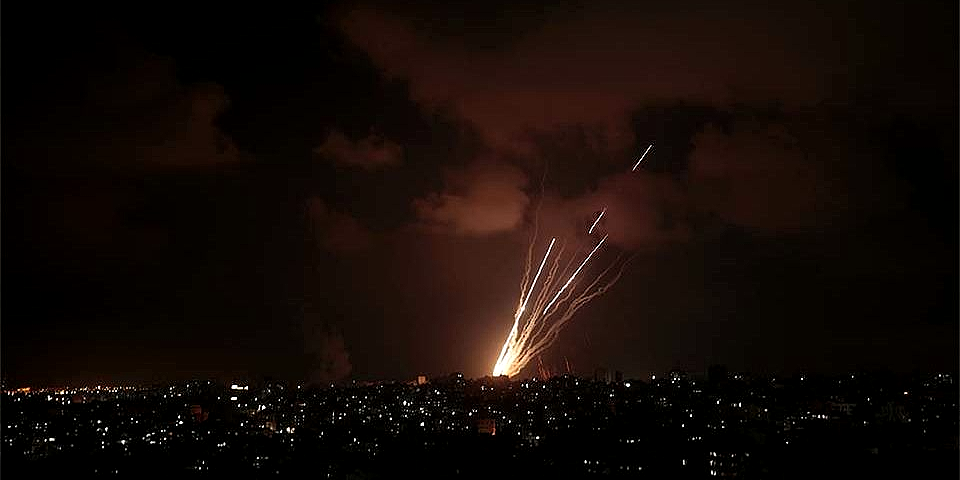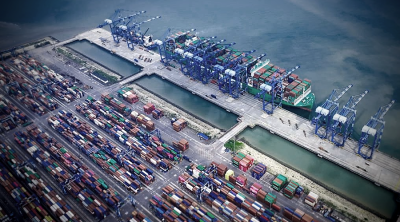The killing of Hamas political leader, Ismail Haniyeh, in Tehran, possibly by Israel, has escalated tensions in the region. Ismail was in Tehran for the swearing-in of the new Iranian President, Masoud Pezeshkian, also attended by Indian cabinet minister, Nitin Gadkari.
The fact that Israel was aware of his precise location and could strike accurately is damaging to Iran’s security apparatus.
The Iranian president commented, “Yesterday I raised his (Ismail’s) victorious hand and today I have to bury him on my shoulders. The Islamic Republic of Iran will defend its territorial integrity, honour, dignity and pride, and make the terrorist occupiers regret their cowardly action.”
Israel on its part has neither denied nor accepted responsibility for the assassination. Its PM, Benjamin Netanyahu, mentioned Israel “will exact a heavy price from any aggression against us on any front.”
He did not mention the Ismail incident. Israel’s spokesperson refused to comment on the subject.
It had already announced its intent to eliminate Ismail immediately after the 7 October 2023 attacks. Israel has also sent a message to all terrorist groups and Iran that it is willing to escalate conflict in case of any retaliation.
This was the third major assassination on the same day. Israel had earlier killed top Hezbollah commander, Fuad Shukr, by a missile strike in Beirut.
He was responsible for the missile attack on Israel resulting in the death of 12 members of the Druze community.
Shukr was on the wanted list of the US, being behind the 1983 bombing which killed 300 US and French soldiers in Beirut.
In addition, there was the killing of Iran’s IRGC (Islamic Revolutionary Guard Corps) commander, Brigadier General Amir Hajizadeh, in Damascus.
He is believed to have been the brain behind Iran’s missile strikes on Israel earlier this year. Iran and Israel had traded missile attacks in April post Israel targeting the Iranian diplomatic compound in Damascus.
Three assassinations in three different capitals displayed the reach of Israel’s intelligence and its strike capability.
The US secretary of state as also secretary of defence avoided commenting on the killing of Ismail, with Antony Blinken insisting that the US would continue to push for a ceasefire between Israel and Hamas.
Blinken mentioned, “This is something we were not aware of or involved in.”
However, few believe the US. Hamas backers Turkey, Qatar, Pakistan, China and Russia condemned the killing. Egypt and Qatar, which were closely involved in peace talks, were most vocal, aware that the situation could deteriorate.
All Palestinian groups, most of whom had differences amongst themselves, united in condemnation. They had all recently inked the Beijing accord.
In fact, the leader of the Islamic Jihad, another Gaza terrorist group and on Israel’s hitlist, was located in the same building as Ismail but on a different floor. He was not targeted.
Turkey was contemplating having Ismail address the Turkish parliament as a counter to Netanyahu speaking to the US Congress. Hence, Erdogan even threatened to invade Israel.
The assassination of Fuad Shukr would result in Hezbollah and its allies increasing their strikes on Israel.
Ceasefire between Hezbollah and Israel is now in cold storage. What is more damaging is the killing of Ismail on Iranian soil.
This is a political assassination and an insult to the host nation, Iran. Ignoring the incident will be immensely damaging to its global reputation, as was the case of Pakistan with the elimination of Osama Bin Laden on its soil.
While all its proxies would concentrate on challenging Israel, the direct involvement of Iran could add to ongoing tensions.
The Iranian leader, Ayatollah Ali Khamenei, has already ordered direct strikes on Israel from Iranian soil.

While Iran will respond to save face, it would seek to avoid an open confrontation with Israel.
The US has warned of attacks from Iran in the coming days. US and British ships are being redeployed off the coast of Israel as a precautionary measure.
US troops in the region are being placed on high alert. US air defence resources would be employed alongside those of Israel.
Israel launched air strikes against Hamas, Hezbollah and the Houthis, hoping to degrade their capabilities, prior to getting involved in a conflict with Iran.
The question remains how Iran would respond. Most likely Iran would employ missiles to target Israel, avoiding utilising its weak air power, which could be easily destroyed by Israel’s superior air force.
Its strength lies in its missiles and drones, which it possesses in large numbers. It is also aware that the US and UK would jointly employ their resources alongside Israel’s Iron Dome, to thwart its strikes.
Hence, it would need to coordinate simultaneous assaults by the Hezbollah, Houthis and other allied terrorist groups to ensure maximum impact.
Retaliatory strikes from Israel could be definitely more damaging as Iran’s air defence is weak with sizable gaps which are known to Israel.
There is also a question of the security of its nuclear installations, a target Netanyahu has been eyeing for some time. His requests to the US to launch air strikes on these have been repeatedly ignored.
In case of an escalation, this could come in as a major target.
Iran would avoid targeting Israel’s population centres as it would not desire an expansion of the conflict.
Its proxies would have no such concerns. Israel is seeking a regime change in Tehran and hence would not desire to alienate the Iranian population, many of whom are against the current regime.
Its targets would be the political and religious leadership, IRGC bases and strategic installations.
Iran would also need to secure its strategic assets before initiating any strike.
Other nations wading into the conflict is unlikely, despite all their bravado.
Oil prices would definitely witness a rise, impacting the global economy.
Chances of peace in the Middle East have now receded. However, what would be more damaging is safety and security of the hostages in the captivity of Hamas as well as the future of Gazans.
Gaza would witness further destruction while survival of the hostages is in doubt.
No retaliatory strikes from Hamas thus far implies deterioration of its military power.
Recruitment of Hamas in Gaza would gain ground. Netanyahu has ensured the conflict gets prolonged as also his continuity as PM.
(Harsha Kakar is a retired Major-General of the Indian Army.)
ADVERTISEMENT
ADVERTISEMENT








































